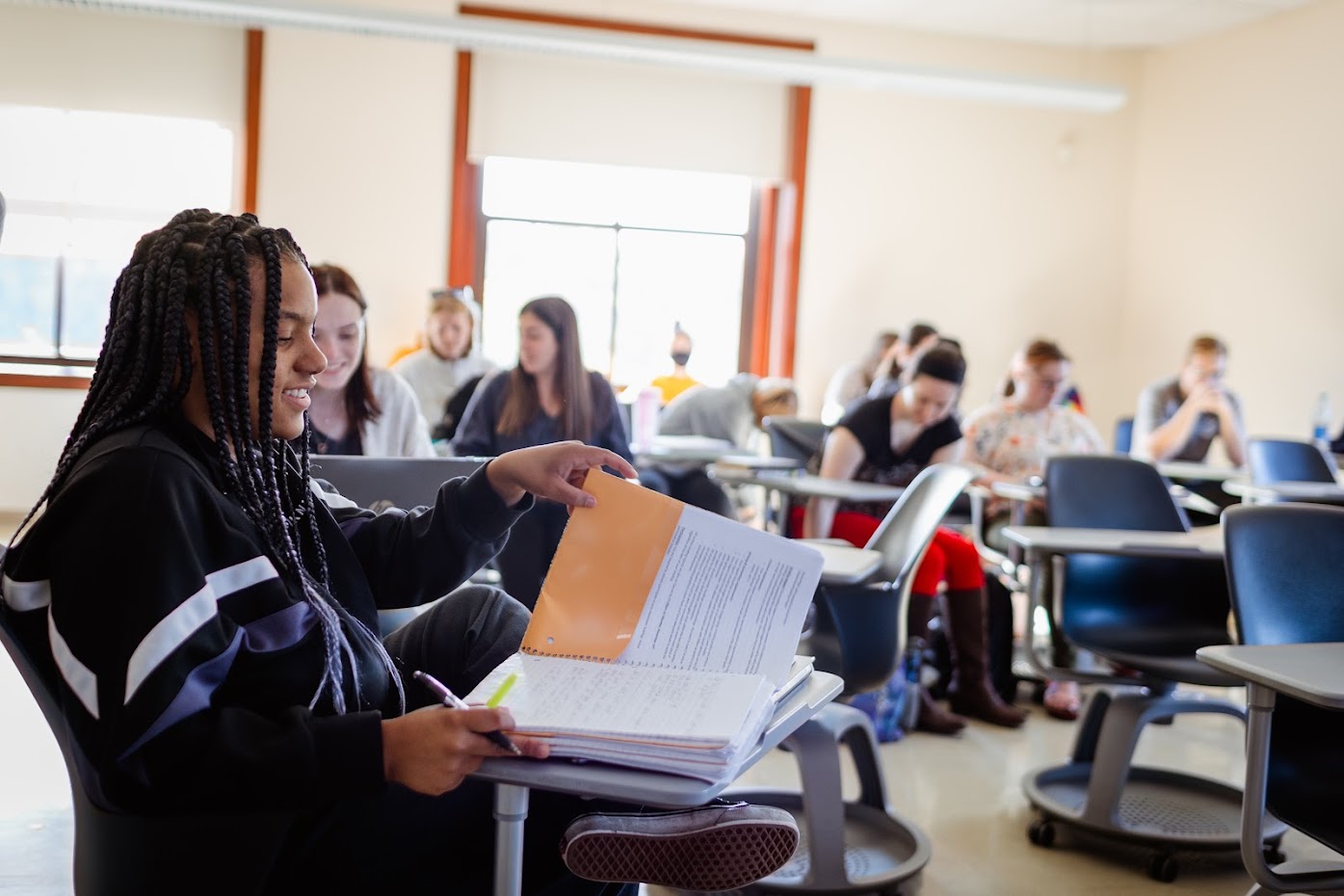Success by Design: A Comprehensive Student Coaching Program Increases Retention while Pushing for Systemic Change
By partnering with faculty and staff across the MCLA campus, Kayla Hollins ’12, executive director of student persistence, and Jordan DeGaetano ’20, academic advising coordinator and success coach, have been able to create a student coaching strategy that has been not simply transactional, but transformational.
Hollins works mainly with Academic Advising and Support, TRIO, and Disability Resources, but also partners with Athletics, New Student Services, and the College’s faculty, among others. “We identify techniques that work for our student population,” Hollins said.
Success coaching in higher education was first formulated in 2000 by InsideTrack, a company offering services to higher ed institutions. Colleges then realized they could create that experience in-house.
“Success coaching identifies a person on campus students can go to for support, and it really speaks to social mobility and individualized support,” Hollins said of the program’s vision. “It’s successful because it lets the student drive the bus, and they tell us what they need.”
The coaching follows an appreciative advising philosophy model, which integrates principles from positive psychology, social constructivist theory, and choice theory to create a framework for guiding students along their academic journey.
“It is student-led as well as intentional,” said Hollins. “We have markers, but we don’t tell students what they need to do; they can identify their own goals and success. Historically, on-campus success coaching was used by disability resources through Title III, and helped 40 students with identified disabilities. In the fall of 2020, we rolled out a TRIO Supporting Student Success grant, which now helps us serve 160 students, and we have seen a better retention rate with them than the rest of the co-hort.”
In the fall of 2022, the College’s Athletics Department opted into the program, and Academic Advising and Support piloted a program with faculty members to work as success coaches for first-year undeclared students, which historically have low retention rates. “After a one-year pilot, that group of students retained at a higher rate than we’ve seen in years,” Hollins said.
In the fall of 2023, Hollins said MCLA kickstarted and enhanced its first-year program through an anonymous donor. “Success teams were created and students were assigned a peer mentor, staff mentor, success coach, and faculty instructor — that’s four people looking out for them,” said Hollins. “We are being proactive about student success, and from the first to second semester the retention rate was 92%.”
Success coaches all have common learning objectives, and each coach undergoes training in mental health support and how to use the College’s new EAB navigator software, which tracks what services students are using, who they are meeting with, and how often. The goal of the software is to help faculty and staff notice trends before they become larger issues.
Students who are on mandatory academic probation must take a 1-credit course called Thriving in College and Beyond, which provides tools on time management and study skills. But what works even better, said Hollins, is to work with coaches before that becomes necessary.
“All students benefit from success coaching and some decide to stay [after their GPAs improve] to work on future plans, goal-building, or challenges they may be facing,” Hollins said. “Some just stop by to say hi. The real goal [of success coaching] is not to need it.”
Thanks to a variety of grants, MCLA has been able to offer a free online summer course for credit recovery or to boost a student’s GPA. For the first time last summer, a success coach was embedded in the course. That coach was Jordan DeGaetano [see sidebar]. Almost 80% of students in the course increased their GPA and fewer students failed or withdrew since the course was created four years ago.
DeGaetano steps in if students are struggling, not handing in assignments, or just need a reminder or someone to serve as an accountability partner.
“We’re focusing on persistence, not just retention,” said DeGaetano. “Students are working toward and achieving their goals and getting what they want out of college. This is a student-driven collaborative partnership where we work on time management, organizational skills, building habits and routines to be successful, identifying learning preferences, and connecting with other oncampus services. A huge piece of it is social navigation — communicating effectively and using conflictresolution skills — as well as creating accountability and self-advocacy to promote a growth mindset. If we can help students reframe experiences or thoughts about themselves, obstacles can be digestible and we can create an action plan.”
“We have the expertise on campus to do this work, but we couldn’t have picked it up off the ground without having a system,” Hollins said. “Some traditional advising is transactional — focused on one issue or question at a time — but we are turning transactional advising into something more meaningful by getting our faculty on board. We’re being very proactive in certain places because some students are falling through the cracks.”

